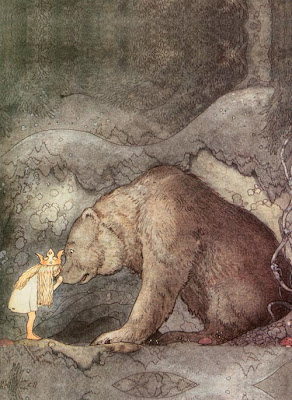Den traditionalistiska och etniskt medvetna bloggen med namnet Cordelia for Lear innehåller ett flertal värdefulla artiklar. Dessa tar bland annat upp den serbisk-amerikanske samtidsanalytikern Srdja Trifkovic, Berdyaevs demokrati- och teknikkritik, general Pattons poesi, Julius Evolas skildring av den keltiska krigartraditionen, och flera aspekter av indo-européernas historia. Dagens inlägg kommer begränsa sig till ett par excerpter, där Cordelia for Lear återger Strindbergs och de Maistres tankar kring nation och identitet.
de Maistre om nation och suveränitet
Kontrarevolutionären de Maistre har tidigare tagits upp på bloggen. I det stycke Cordelia återger tar han upp nationer och deras skiftande väsen. Stycket är av intresse som en tidig kritik av både multikulturalismen och den liberala universalism som vill stöpa alla folk i samma marknadskapitalistiska och parlamentaristiska form.
The same power that has decreed social order and sovereignty has also decreed different modifications of sovereignty according to the different character of nations. Nations are born and die like individuals. Nations have fathers, in a very literal sense, and teachers commonly more famous than their fathers, although the greatest merit of these teachers is to penetrate the character of the infant nation and to create for it circumstances in which it can develop all its capacities.
Nations have a general soul and a true moral unity which makes them what they are. This unity is evidenced above all by language.
The Creator has traced on the globe the limits of nations…. These boundaries are obvious and each nation can still be seen straining to fill entirely one of the areas within these boundaries. Sometimes invincible circumstances thrust two nations together and force them to mingle. Then their constituent principles penetrate each other and produce a hybrid nation which can be either more or less powerful and famous than if it was a pure race.
But several national elements thrown together into the same receptacle can be harmful. These seeds squeeze and stifle each other. The men who compose them, condemned to a certain moral and political mediocrity, will never attract the eyes of the world in spite of a large number of individual virtues, until some great shock, starting one of these seeds growing, allows it to engulf the other and to assimilate them into its own substance. Italiam! Italiam!
Sometimes a nation lives in the midst of another much more numerous, refuses to integrate because there is not sufficient affinity between them, and preserves its moral unity….
When one talks of the spirit of a nation, the expression is not so metaphorical as is believed.
From these different national characteristics are born the different modifications of governments. One can say that each government has its separate character, for even those which belong to the same group and carry the same name reveal subtle differences to the observer.
The same laws cannot suit different provinces which have different customs, live in opposite climates, and cannot accept the same form of government.

Strindberg och den motvilliga fosterlandskärleken
I det Sverige där vi förväntas älska det svenska/socialdemokratiska systemet men känna skepsis inför det genuina arvet och identiteten är det stycke ur Strindbergs En blå bok Cordelia återger i något omarbetad form också intressant.
Only in my country, I can eat and get full, only in my country’s language, I can express my thoughts, only in my landscape, I can enjoy the summer and swim in my sea. If strangers attack my country, I’ll defend it, because it is my duty. But to love ones country, is something different.
It assumes that the country would be love-worthy, as well as its inhabitants. But to love a country, ”where all people hate each other”, where there’s many differences seperating us, is difficult. Where each category of people is suffering from pride, self-righteousness, moral-pedestals, high-horses, groups considering themselves to be the finest, where one avails ideological titles equally as much as to abuse them, such as liberal, conservative, racist, egalitarianist, anarchist, communist, internationalist, nationalist, globalist, fascist, atheist, theist, leftist, right-winger, moderate, extremist and so it continues.
A country whose soil is pledged to countries abroad, and where one hundred native people emigrate each day, at the same time as one hundred foreign people immigrate each day, like sailors abandoning the sinking ship, whilst rats are fighting with the children and the wifes of the last dry space on which to stand on before the ship sinks down into the deep blue.
Where the municipalities are indebted for unproductive purposes, and the individual living on advances, it seems scary, where the culture, the people and the work is regarded as a secondary matter and pleasure become principal, where citizenship is relative and arbitrary, where the political interest starts with the parliament’s elections and ends with the Tabouret (old figure of speech), which is not to serve their country, their people but to rule it and it’s subjigates while collecting the taxes, reward their closest, loyal followers and punish the others, where the parties divide and sects embezzle, this is a place which is difficult to love. But I suppose you’ll have to, suck it up and try!
Relaterat
Joseph de Maistre
Strindberg – Inferno
Nordanvind – Ett guldkorn av Strindberg
Strindberg om Nietzsche
Anark – Absinterier
Anark – Strindberg om Ryssland
Mohamed Omar – Abu Casems tofflor











